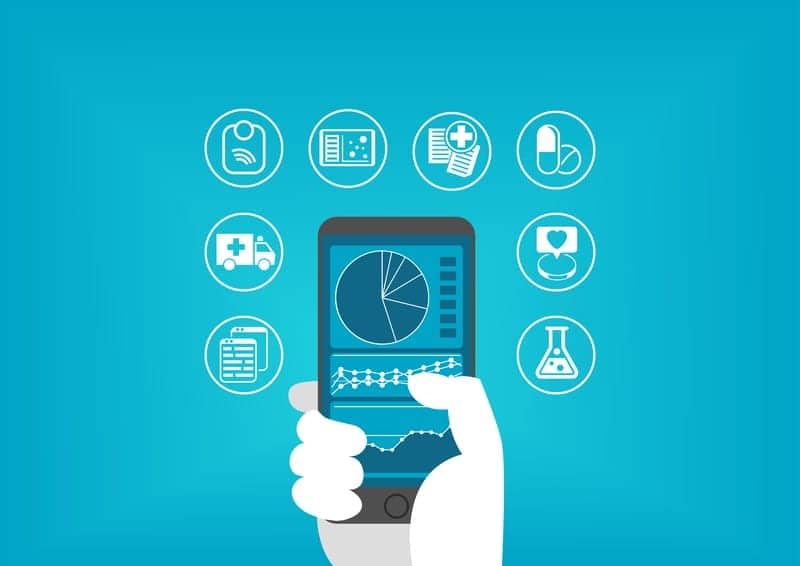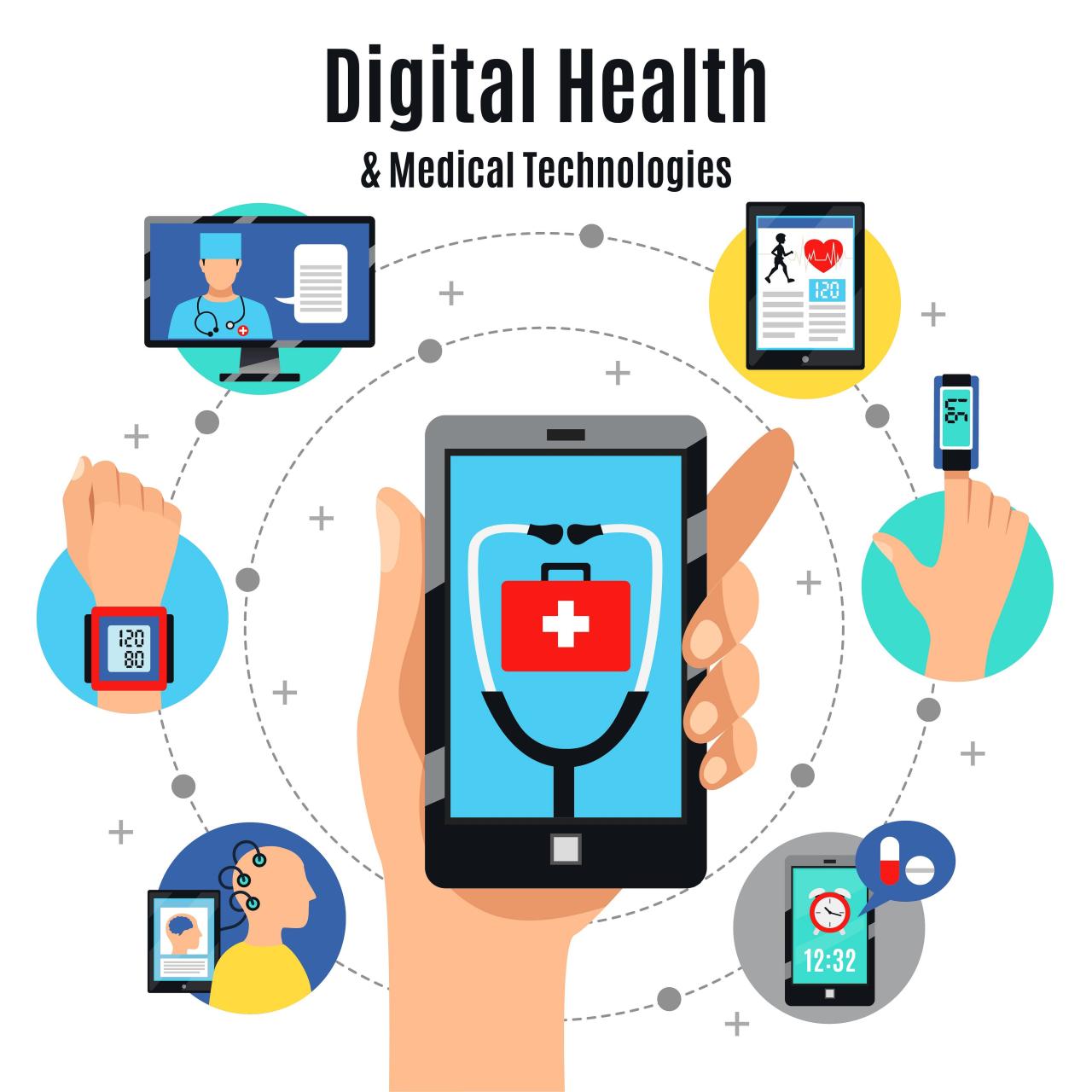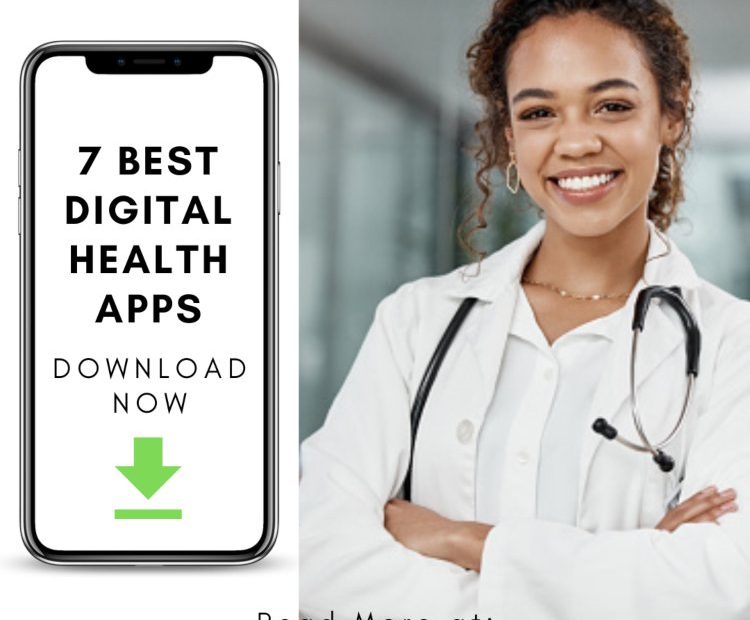Digital health apps that actually work sets the stage for this informative exploration, delving into the world of effective health applications with precision and insight.
As we navigate through the realm of digital health apps, we uncover key features, impactful examples, integration strategies, and the future trends that shape this dynamic landscape.
Factors to consider when evaluating digital health apps

When evaluating digital health apps, it is important to consider key features that indicate the effectiveness of the app, user reviews and ratings, as well as user data privacy and security.
Key Features of Effective Health Apps
- Accurate and Reliable Information: The app should provide trustworthy health information backed by scientific evidence.
- Easy-to-Use Interface: A user-friendly design with intuitive navigation can enhance user experience and engagement.
- Personalization Options: Customization features tailored to individual health goals and needs can improve user motivation and adherence.
- Integration with Wearable Devices: Syncing with wearables for tracking and monitoring health metrics can offer a comprehensive view of health data.
- Regular Updates and Maintenance: Apps that are regularly updated with new features and bug fixes demonstrate commitment to improving user experience.
User Reviews and Ratings
User reviews and ratings can offer valuable insights into the real-world performance of a digital health app. Positive reviews highlighting effectiveness, ease of use, and positive health outcomes can indicate a reliable app. On the other hand, negative reviews pointing out bugs, lack of support, or misleading information can serve as red flags for potential issues.
User Data Privacy and Security
Ensuring user data privacy and security is crucial when using a health app. Look for apps that are transparent about their data collection practices, provide clear privacy policies, and use encryption to protect sensitive information. Trustworthy apps will prioritize user confidentiality and secure data storage to maintain user trust.
Examples of digital health apps known for their effectiveness
There are several digital health apps that have gained popularity for their effectiveness in helping users improve their health and well-being. These apps leverage technology to provide personalized support, track progress, and offer valuable insights to users.
1. MyFitnessPal
MyFitnessPal is a widely-used app that helps users track their food intake, exercise, and weight goals. It provides a database of over 11 million foods, making it easy for users to log their meals and monitor their calorie intake. The app also offers personalized recommendations based on users' goals and progress, helping them make healthier choices.
2. Headspace
Headspace is a meditation app that offers guided meditations, mindfulness exercises, and sleep sounds to help users reduce stress, improve focus, and enhance their overall well-being. The app features various meditation programs tailored to specific needs, such as managing anxiety, improving sleep, and boosting creativity.
3. Fitbit
Fitbit is a fitness tracker app that monitors users' physical activity, heart rate, sleep patterns, and more. It syncs with Fitbit wearable devices to provide real-time data and insights on users' health and fitness levels. The app also allows users to set goals, track their progress, and compete with friends, making fitness more engaging and motivating.
Strategies for integrating digital health apps into daily routines

Integrating digital health apps into daily routines can be a game-changer for maintaining overall well-being. It's important to establish habits that make using these apps seamless and beneficial.
Tips for staying consistent with using health apps
- Set reminders on your phone to prompt app usage at specific times of the day.
- Make it a part of your morning or bedtime routine to check in on your health app.
- Find a buddy or accountability partner to share progress and motivate each other.
- Reward yourself for meeting health goals tracked by the app.
Benefits of incorporating health apps into everyday life
- Increased awareness of your health metrics and progress towards goals.
- Convenience in tracking various aspects of your health in one place.
- Potential for early detection of health issues through regular monitoring.
- Empowerment to take control of your health and make informed decisions.
Real-life examples of successful integration of health apps
Take Sarah, for example, who used a fitness app to track her workouts and meals. By consistently using the app, she was able to lose weight and improve her overall fitness level. Another individual, John, integrated a meditation app into his daily routine to manage stress and improve his mental well-being.
The future of digital health apps and emerging trends
The landscape of health apps is constantly evolving, with new technologies shaping the future of digital health solutions.
Upcoming technologies in health apps
- Wearable devices with advanced sensors for real-time health monitoring.
- Integration of virtual reality (VR) and augmented reality (AR) for immersive healthcare experiences.
- Genomic testing and personalized medicine to tailor treatments based on individual genetic profiles.
Potential impact of AI and machine learning
- AI algorithms can analyze large datasets to identify patterns and predict health outcomes.
- Machine learning can enhance diagnostic accuracy and assist healthcare professionals in decision-making.
- AI-powered chatbots for personalized health advice and virtual consultations.
Telemedicine and remote monitoring
- Telemedicine allows patients to consult with healthcare providers remotely, improving access to care.
- Remote monitoring devices enable continuous tracking of vital signs and symptoms, enhancing proactive healthcare management.
- Integration of telemedicine platforms with digital health apps for seamless patient care delivery.
Last Word

In conclusion, Digital health apps that actually work offer a promising avenue for individuals seeking to enhance their well-being through technology. With a focus on effectiveness, user experience, and innovation, these apps pave the way for a healthier future ahead.
FAQ Corner
What key features indicate that a digital health app actually works?
Some key features include personalized insights, seamless user experience, regular updates, data security measures, and positive user feedback.
How can user reviews and ratings help determine the effectiveness of a health app?
User reviews and ratings provide valuable insights into the real-world performance of an app, highlighting its strengths and weaknesses from actual user experiences.
Why is user data privacy and security important in a health app?
Ensuring user data privacy and security is crucial in health apps to maintain confidentiality, protect sensitive information, and build trust with users.
What upcoming technologies will shape the future of health apps?
Emerging technologies like AI, machine learning, telemedicine, and remote monitoring are poised to revolutionize the landscape of health apps, offering innovative solutions for users.























